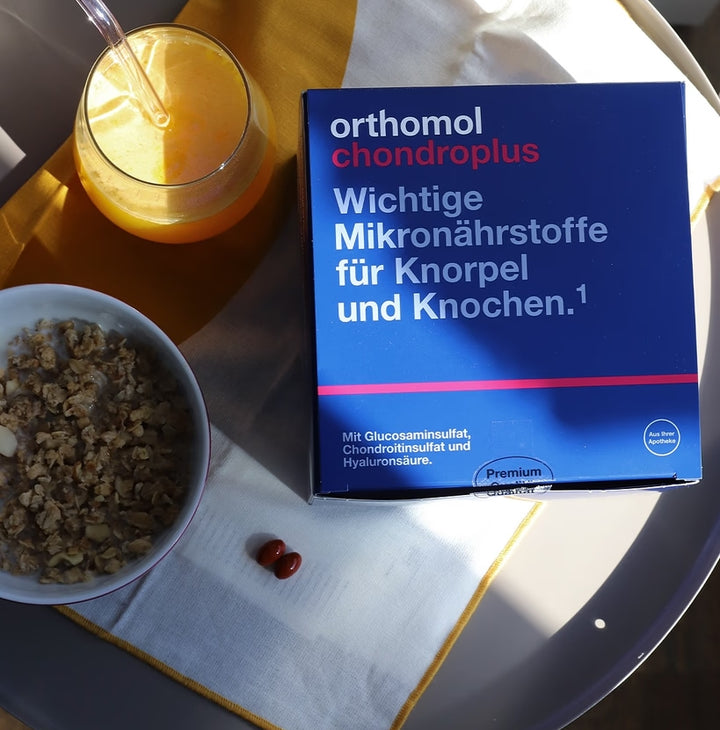
Family Wellness, Re-Imagined: Daily Routines That Support Parents and Kids Together
Imagine a household where every member feels energized, balanced, and connected through healthy daily habits. Shared meals become moments of nourishment, family walks turn into laughter-filled rituals, and wellness becomes a natural part of life.
True family nutrition goes beyond what is on the plate. It is a lifestyle built around balance, connection, and care. With the right approach to healthy eating for families and the best vitamins for kids’ immune system, parents can help everyone thrive together through every season.
The Foundation of Family Nutrition
A strong foundation in family nutrition starts with awareness. The modern family juggles school, work, and household responsibilities, leaving little time to focus on balanced meals. Processed snacks, sugary drinks, and irregular eating habits can easily disrupt the body’s rhythm. A well-planned family nutrition routine brings balance back to the table.
Balanced nutrition means combining whole grains, fresh fruits, vegetables, lean proteins, and healthy fats in everyday meals. When parents prioritize this, they set the tone for their children’s habits. The goal is not perfection but progress. Every small change toward more nutrient-rich foods helps build lifelong health.
Shared family meals also encourage communication and emotional bonding, which strengthens overall well-being.
Healthy Eating for Families: Beyond the Plate
Healthy eating for families is about more than meal planning. It is about creating an environment that supports healthy choices without pressure. This includes how food is presented, how meals are shared, and how kids learn about nutrition from their parents’ actions.
Involving children in the kitchen builds confidence and curiosity. Let them help wash vegetables, measure ingredients, or pack lunch boxes. When kids participate, they are more likely to eat what they helped prepare. Parents can make nutrition fun by turning it into a family project rather than a rule.
Hydration plays a big role as well. Water supports digestion, energy, and focus throughout the day. Keeping reusable bottles filled and visible encourages everyone to stay hydrated. Families can also replace sugary beverages with infused water or smoothies rich in vitamins and antioxidants.
Understanding Vitamins for Family Wellness
Even with healthy meals, it can be challenging to meet every nutrient requirement through food alone. Busy schedules, selective eating, and seasonal changes often leave small nutritional gaps. Family vitamins and targeted supplements can help bridge these gaps and support immune strength, energy, and growth.
Micronutrients like vitamins C, D, E, zinc, and selenium play key roles in maintaining immunity and cell function. For children, these nutrients are vital for development, focus, and resilience. For adults, they support energy levels, stress response, and long-term health.
When selecting supplements for family wellness, look for comprehensive formulations that address the specific needs of each age group. Parents need sustained energy and mental clarity, while children need immune support and growth-boosting nutrients.
The Role of Immune Support in Family Health
Family wellness begins with a strong immune system. Daily exposure to germs at school, workplaces, and public spaces makes immune support a shared priority. The body’s defense system depends on consistent nutrition, sleep, and physical activity to perform at its best.
Vitamins C and D are key defenders. Vitamin C acts as a potent antioxidant that protects cells and supports collagen production. Vitamin D regulates immune function and helps the body absorb calcium for bone strength. Zinc and selenium also contribute to immune cell communication and protect against oxidative stress.
When these nutrients are maintained through diet and supplementation, families experience fewer sick days and greater overall vitality. Building immune health is not about reacting to illness—it is about daily prevention and consistent nourishment.
Making Nutrition a Shared Family Experience
Family wellness is most effective when it feels like teamwork. Shared experiences build accountability and motivation. Parents can integrate wellness habits into everyday life by setting examples rather than rules. For instance, instead of enforcing a “no screen time before dinner” policy, suggest a family walk or cooking session to transition from work or school to evening time.
Small, consistent habits such as keeping fruit bowls on the counter or packing colorful lunches encourage healthy eating naturally. The goal is to create an environment where wellness feels normal and enjoyable. When every family member feels included, health becomes part of the household identity.
Practical Ways to Strengthen Family Wellness
-
Create predictable meal routines. Eat together at consistent times to build structure. Even one shared meal daily helps improve communication and emotional connection.
-
Encourage variety in the diet. Experiment with new vegetables or grains each week. Diversity in food introduces a broader range of nutrients to the family’s diet.
-
Prioritize sleep. Children need more rest for growth, while parents benefit from better focus and energy.
-
Incorporate family fitness. Walks after dinner, weekend bike rides, or stretching together before bed are simple ways to stay active as a family.
-
Manage stress together. Teach deep breathing or mindfulness exercises that the whole family can do. Stress management is a vital part of overall health and harmony.
Supporting Balanced Growth and Development
Nutrition and wellness routines shape the foundation for the future. Children who grow up seeing health prioritized learn responsibility and discipline. They understand that self-care is not selfish; it is necessary for living well. For parents, maintaining balance sets a powerful example of strength and self-respect.
As children grow, their nutritional needs evolve. Teens may need more protein and calcium for muscle and bone development, while younger kids need immune and cognitive support. Adults, too, face changing requirements as metabolism and stress levels shift over time. Regularly reassessing family nutrition helps meet these evolving needs effectively.
Building Emotional Wellness Through Nutrition
Food has a direct connection to mood and mental well-being. Nutrients such as omega-3 fatty acids, magnesium, and B vitamins support brain function and emotional stability. When families eat nutrient-rich meals together, they are supporting physical health and creating emotional nourishment.
Regular meals foster open communication. Children who feel heard and connected at the dinner table are more likely to develop healthy coping skills and confidence.
Bring Balance and Wellness Home with Orthomol USA
At Orthomol USA, we understand that family wellness is built one day at a time. Our supplements for families are designed to support parents and kids with the nutrients needed to maintain energy, immunity, and focus.
Together, we help families stay strong, connected, and ready for life’s everyday adventures.




